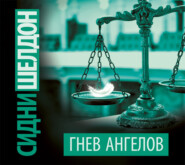По всем вопросам обращайтесь на: info@litportal.ru
(©) 2003-2025.
✖
The Other Side of Me
Настройки чтения
Размер шрифта
Высота строк
Поля
‘The damnedest thing happened, Otto. Why would Wee Wisdom magazine send me a check for five dollars?’
Thus, my first professional writing was published under the name of Al Marcus.
One day my mother came running into the apartment, breathless. She hugged me and exclaimed, ‘Sidney, I’ve just come from Bea Factor. She says you’re going to be world famous! Isn’t that wonderful?’
Bea Factor was a friend who was reputed to be a psychic and there were many acquaintances of hers who verified it.
To me, it was wonderful that my mother believed her.
In the twenties and thirties Chicago was a city of noisy elevated trains, horse-drawn ice wagons, crowded beaches, strip clubs, the smell of the stockyards, and the St. Valentine’s Day Massacre, where seven mobsters were lined up against a wall in a garage and machine-gunned down.
The school system was run like the city—tough and aggressive. Instead of ‘show and tell,’ it was ‘throw and tell.’ And it wasn’t the students who were throwing things; it was the teachers. One morning, when I was in third grade, a teacher was displeased by something a pupil said. She picked up one of the heavy glass inkwells that were set on each desk and hurled it across the room at the student. If it had hit him in the head, it would have killed him. I was too terrified to return to school that afternoon.
My favorite subject in school was English. Part of the class assignment was taking turns reading aloud from a book called the Elgin Reader that contained short stories. We would turn to a story by Poe or O’Henry or Tarkington, and I would dream that one day the teacher would say, ‘Turn to page twenty in your reader,’ and lo and behold, there would be a story written by me. Where that dream came from, I do not know. Perhaps it was an atavistic throwback to some long-gone ancestor.
The tenth floor of the Sovereign Hotel was the neighborhood’s ole swimmin’ hole. Whenever possible, I would take Richard there to play in the pool. He was five years old.
On this particular day, I deposited him in the shallow end and I swam to the deep end. While I was talking to some people, Richard got out of the pool, looking for me. He came to the deep end of the pool, slipped and fell in. He went straight to the bottom. I saw what had happened, dove down and pulled him up.
No more ole swimmin’ hole for us.
When I was twelve years old, in the seventh grade at Marshall Field grammar school in Chicago, I was in an English class where we were allowed to work on our own projects. I decided to write a play about a detective investigating a murder. When it was finished, I turned it in to my teacher. She read the play, called me to her desk and said, ‘I think this is really good, Sidney. Would you like to stage it?’
Would I! ‘Yes, ma’am.’
‘I’ll arrange for you to put it on in the main auditorium.’
And suddenly I remembered Natalie’s excitement about Bea Factor’s prediction. Sidney is going to be world famous.
I was filled with excitement. This was the beginning. When the class heard the news, everyone wanted to be cast in the play. I decided that not only would I produce it and direct it, but I would also star in it.
I had never directed before, of course, but I knew exactly what I wanted.
I began casting. I was allowed to rehearse after school in the huge auditorium, and soon my play was the talk of the school. I was given all the props I asked for: couches, chairs, tables, a telephone…
It was one of the happiest times of my life. I knew without question that this was the beginning of a wonderful career. If I could write a successful play at my age, there was no limit to how far I could go. I would have plays on Broadway with my name in lights.
I held a final dress rehearsal with my classmates who had been cast by me, and the rehearsal went perfectly.
I went to my teacher. ‘I’m ready,’ I said. ‘When would you like me to put the play on?’
She was beaming at me. ‘Why don’t we do it tomorrow?’
I got no sleep that night. I felt that my whole future depended on the success of the play. Lying in bed, I went over it scene by scene, looking for flaws. I could find none. The dialogue was excellent, the plot moved swiftly and the play had an unexpected twist at the end. Everyone was going to love it.
The next morning, when I arrived at school, my teacher had a surprise for me.
‘I’ve arranged to have all the English classes dismissed so that they can come down to the auditorium to see your play.’
I could not believe it. This was going to be a far bigger triumph than I had imagined.
At ten o’clock in the morning the huge auditorium was filled. Not only were all the students in the English classes there, but the principal and teachers who had heard about my play were present, eager to see the work of the child prodigy.
In the midst of all this excitement, I was calm. Very calm. It seemed only natural that this was happening to me at such an early age. You’re going to be world famous.
It was show time. The conversations in the auditorium began to die down and the theater became hushed. The set consisted of a simple living room where a boy and girl were playing a husband and wife whose friend had been murdered. They were seated next to each other on a sofa.
I was playing the detective investigating the murder. I stood in the wings, ready to make my entrance. My cue was the boy on stage looking at his watch and saying, ‘The inspector should be here soon.’ But instead of ‘soon,’ he started to say ‘any minute,’ and he caught himself and tried to change ‘minute’ to ‘soon.’ What came out was, ‘The inspector should be here any minsoon.’ He quickly corrected himself, but it was too late. Minsoon? That was the funniest sound I had ever heard. It was so funny, I had to laugh. And I could not stop. The more I thought about it, the louder I laughed.
The boy and girl on the stage were staring at me in the wings, waiting for me to make my entrance. I could not move because I was laughing too hard. I was helpless. The laughing took over completely and I became more and more hysterical.
The play had come to a standstill before it started.
After what seemed an eternity, from the auditorium I heard my teacher’s voice calling, ‘Sidney, come out here.’
I forced myself to leave the shelter of the wings and stumble out to the center of the stage. My teacher was in the middle of the auditorium, on her feet, listening to my frenzied outburst. ‘Stop it,’ she commanded.
But how could I? Minsoon?
The audience began getting up and drifting out of the auditorium and I watched them go, pretending that I was laughing because I wanted to, pretending that what was happening was not important.
Pretending that I did not want to die.
THREE (#ulink_a7a01465-3ab6-5e5c-8285-d0d13374be36)
By 1930 the Depression had gotten deeper and was squeezing the economic life out of the country. Bread lines had increased and unemployment was pandemic. There were riots in the streets.
I had graduated from Marshall Field grammar school and had a job at Afremow’s drugstore. Natalie was working as a cashier at a roller derby, a new craze that took place in large rollerdrome arenas with huge circular wooden rinks where intrepid men on roller skates raced around the rink, knocking down their rivals and committing as much mayhem as they could while the audience cheered them on.
Otto, meanwhile, was traveling around the country putting together his hypothetical mega-deals.
Intermittently, he would come home filled with enthusiasm.
‘I have a good feeling about this. I just made a deal that’s going to put us on easy street.’
And we would pack up and move to Hammond, or Dallas, or Kirkland Junction, in Arizona.
‘Kirkland Junction?’
‘You’ll love it there,’ Otto promised. ‘I bought a silver mine.’
Kirkland turned out to be a small town, 104 miles from Phoenix, but that was not our destination. Kirkland Junction was a dilapidated gas station, and we ended up living in the back of it for three miserable months while Otto tried to corner the silver market. It turned out that there was no silver in the mine.
We were saved by a phone call from Uncle Harry.
‘How’s the silver mine?’ Harry asked.
‘Not good,’ Otto said.

















